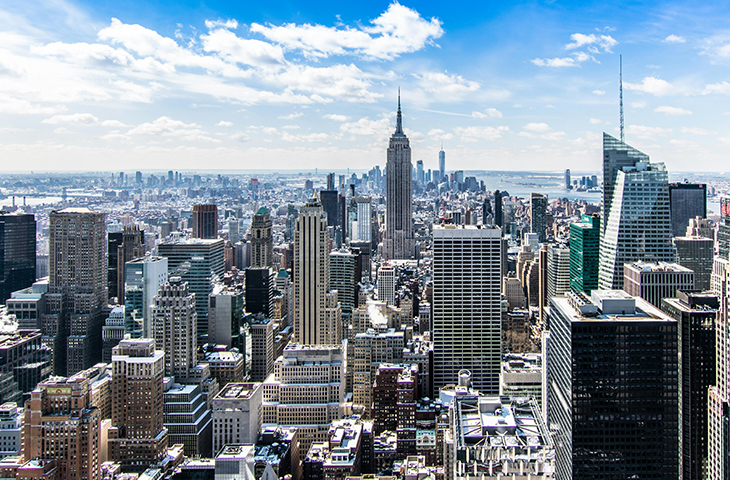Trump Has Finally Been Sentenced In His Felony Hush-money Case. Here's What's Next.

Donald Trump appears on a Manhattan courtroom video screen with attorney Todd Blanche during his hush-money sentencing.
Pool/Getty Images
- After months of delays, Donald Trump was sentenced Friday in his hush-money case.
- Now that his felony status is finalized, he can appeal the conviction and the prosecution itself.
- In the meantime, the liquor licenses at two of his New Jersey golf clubs could be revoked.
Donald Trump received no punishment for the 34-count conviction handed down by a jury in his New York hush-money case.
The president-elect's sentencing, though, finalizes his status as a felon, heralding a new chapter of legal proceedings.
Trump, who is scheduled to be sworn in as president again on January 20, can now begin an appeal of his criminal conviction.
In the meantime, his business interests could face legal challenges, and the liquor licenses at his New Jersey golf resorts could be revoked.
Here's what comes next now that Trump is the first president in US history with a felony sentence on his record.
Donald Trump at his Bedminster golf club, which holds a liquor license that could be in jeopardy.Seth Wenig/AP
Trump's liquor licenses
The liquor licenses for two of Trump's New Jersey golf courses, the Trump National Golf Club in Colts Neck and the Trump National Golf Club in Bedminster, may be in jeopardy.
"With the conclusion of the sentencing hearing, the Division of Alcoholic Beverage Control (ABC) will proceed in determining whether President-elect Trump is qualified to continue to hold an interest in the licenses," said a spokeswoman for the New Jersey attorney general's office, of which the ABC is a division.
This past summer, New Jersey's Division of Alcoholic Beverage Control set and then postponed a liquor-license-revocation hearing for the two clubs, saying it was waiting for Trump's sentencing to be finalized.
Since then, both clubs have been operating with interim licenses that expire in February. Those licenses have remained in effect, "allowing the facilities to continue serving alcohol until a hearing on the renewals is held," the spokesperson said Wednesday.
Trump has a third New Jersey club in Pine Hill, the Trump National Golf Club Philadelphia. Its liquor license is up for renewal by borough authorities in June. Borough officials did not respond to a request for comment on their plans for that license.
The liquor licenses for all three New Jersey clubs are in Donald Trump Jr.'s name — but that does not protect them from Trump's new status as an adjudicated felon, New Jersey officials said.
State law requires revocation if anyone who either holds or is the primary beneficiary of a liquor license has a finalized felony conviction.
The AG spokesperson said this week that the agency's previous review, which found Trump benefits from the licenses, has not changed.
"There has been no change to ABC's review that indicates that the president-elect maintains a direct beneficial interest in the three liquor licenses through the receipt of revenues and profits from them, as the sole beneficiary of the Donald J. Trump Revocable Trust," the AG spokesperson said this week.
Trump and his attorney Todd Blanche on a video feed during his sentencing hearing Friday.Pool/Getty Images
A criminal appeal
Trump can now appeal his indictment and conviction to New York's Appellate Division, which serves as a first-tier appellate court in the state.
If that fails, he could file with the New York State Court of Appeals, the state's highest court.
If the state courts uphold his conviction, Trump could ask the US Supreme Court to overturn it.
The Supreme Court ruled by a narrow 5-4 margin to allow Trump's sentencing to proceed Friday.
Two of the Republican-appointed justices, John Roberts and Amy Coney Barrett, sided with the Democratic appointees to allow the hearing to happen.
In post-trial legal arguments, Trump's lawyers have cited a July Supreme Court decision that found a president is immune from criminal prosecution. The ruling offers broad immunity, so evidence involving a president's "official acts" cannot be used in a prosecution, even for nonofficial actions.
The Justice Department frequently intervenes on behalf of members of the executive branch to argue that its members are immune from certain kinds of civil lawsuits.
The department could do the same for Trump as he appeals his criminal case, Michel Paradis, a professor of constitutional law at Columbia University, told Business Insider.
"They would basically file a motion in the Appellate Division to assert the interests of the United States, which would entitle them to file a brief and argue," Paradis told BI.
Trump has nominated Todd Blanche and Emil Bove, the lead lawyers in his Manhattan criminal case, to serve in top roles in the Justice Department for his second term.
Trump has also named John Sauer — who successfully argued the criminal immunity case on his behalf last year — as his pick for solicitor general, who presents arguments before the Supreme Court.
Other legal issues
The two federal criminal cases against Trump — over his efforts to overturn the results of the 2020 presidential election and for taking government documents with him to Mar-a-Lago post-presidency — were dismissed after Trump won reelection in November.
He still faces an array of civil lawsuits stemming from his actions during the January 6, 2021, riot, but those will likely continue to move slowly through the courts.
A fourth criminal case, in Atlanta, over Trump's efforts to overturn Georgia's 2020 election results, has been mired in delays. The case is effectively frozen as Fani Willis, the district attorney who brought the indictment against Trump and more than a dozen codefendants, appeals a decision to have her removed from the case over an inappropriate relationship with its special prosecutor.
The greatest consequences for Trump may be the judgments against him in civil cases brought by the New York Attorney General's office and by the writer E. Jean Carroll.
In February, a New York judge found Trump and his companies liable for fraud, ordering them to pay penalties that, with interest, have ballooned to nearly a half-billion dollars. An appeal of that case is pending.
Two juries have ordered Trump to pay a total of nearly $90 million after he was found liable for sexually abusing and defaming Carroll. Those cases, too, are being appealed.


